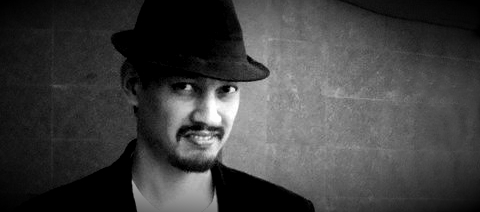Ron Regis is an award-winning writer, newspaper columnist, humorist, and intellectual. He’s a rare talent, able to explain complex ideas in interesting, meaningful, and very funny ways – both verbally and on paper. He loves writing and it shows. You can catch his monthly column Hanginaround in the Philippine Star; he also blogs at Super Secret Laws and Filipino Poker Coach. Ron won the 2010 Philippine Lifestyle Journalism Award and has been published by Asia Poker Digest and Uno.

When did you first start writing? What kind of things would you write about?
I would say I first started writing in pre-school. I wrote letters. I did not write well in grade school, as I recall my cursive was awful. In sixth grade, I wrote as a secret admirer, but that was not well-received. Must have been the grammar.
My earliest memory of being recognized as someone who writes well did not come until high school. Our English teacher gave regular exercises and he always gave me top marks. His only comment was that I had very poor endings – stuff like “Oh well, I’ll just put my pen down” or “That’s all the space I have.” I do not recall what he had us write about, but his feedback stuck with me. I suck at endings. Hollywood screenwriting, here I come!
What do you do to improve your endings?
My crutch for improving my endings is the old loaded gun device cliché thing. A gun I flash somewhere in the beginning is gonna go off in the end. It helps when I think that way so that everything I write is to set up some one-liner I will end with.
For stories, I just gave up. I find that I am so stream-of-consciousness when I write that I have no perceivable closure – more like “so that’s the story so far, how do you think it ends after that?” When writing articles, it’s easy because I am usually just going to rattle off a list of points and arrange them so that the last point is the most ponderous. I can leave them with that and readers hopefully feel that the piece is closed because the rest of their lives is up to them.
I struggle with writing prompts – I never stay on them. My award-winning piece was prompted by “write about your idol” but ended up as a piece about how street urchins inspire me. I’m very tangential.
You do strike me as someone who prefers writing to persuade, rather than to tell a story. What is it about presenting an argument that is so compelling?
I believe that when I write, I am not so much creating as I am transcribing. Even when I set out to write a story, the story becomes the means to an end – to share a learning. You could say I am affected by the story as I am trying to tell it, and I wander into some epiphanies.
Before, I thought I would be a public speaker on a street corner with very important revelations about how the world works and how people can live better. Technology helped temper that into subtlety. Now I can just write and be confident that the people who are supposed to be reached by the words I send out there will find their way. I do not believe I have earned the right to be published, but I have been blessed that way.
Sometimes I just mumble to myself and somebody near me hears it. I am very passionate about my world views, but also cautious about not coming off as a religious nut about it. That combines well with my passion for humor and a passion for order. I am often happy with the result, even if only one other person ever responds.
I am actually envious of people who can just tell a story and have it be a compelling listen.
What is your “zone” when it comes to writing? How do you get in the zone?
When it comes to writing, my zone is – as I mentioned – when I feel like I am just transcribing. This is the moment when my internal dialogue is going by so fast I have to race to keep up with it. My notes will look like kindergarten scrawlings in shorthand. If typing, everything is a typo. I just race to get it down and go back to clean it up later.
I don’t just sit down to get in the zone though. Sometimes an idea floats in my head for a minute, sometimes for weeks. Sometimes I just write down a one-liner and forget about it. If the way to tell that story does not come to me, I don’t sit down and wrack my brain. Typically, I am taking a walk or having lunch when that seed bursts from my subconscious into a multi-branched tree – solid and clear. Then I go write.
It even happens while reading something else entirely.
How important is reading when it comes to writing?
I cannot overemphasize the value of reading – not just for a wealth of ideas or for a healthy vocabulary or implicit understanding of spelling and grammar – but for the experience of what works and what doesn’t.
Name two or three writers who have influenced your craft in a major way.
The writers I’ve read who lit the “that works!” bulb in my head are Joseph Wambaugh and Quentin Tarantino. Both use gritty foul characters and wicked smart humor. I’m not into descriptive picturesque writing. I’m more engaged by being assaulted by a character in my face. I think Tarantino’s monologues influence my specific style of writing.
I tend to transcribe some eccentric character’s monologue as he goes off and rants about something important. In this fashion, I guess every stand-up comedian is an influence – especially the preachy technical ranters like George Carlin and LouisCK.
What are your favorite books?
The books I re-read the most would probably be “The Choirboys” by Joseph Wambaugh and the screenplays of Snatch and Reservoir Dogs. What they all had in common was rowdy honest dialogue. I think people are flawed dirty beasts, and I like when they are presented that way.
Any plans for your own book? A collection of your essays perhaps?
I used to think I would write a novel, but I now firmly believe that is something only retired 60-year olds living on a farm can do really well. There is just so much space required for that kind of imagination. The book I am planning to publish one day is already being written one chapter at a time. It’s a guidebook.
You’ve written both 30-minute TV scripts and short comedy scripts. TV is a different beast altogether. What rules do you abide by when scriptwriting?
When writing for TV, I like to be a merciless editor. I have no faith in attention span. I also have no penchant for factual AVP writing, so don’t ask me for content!
If you weren’t a writer what would you be?
When I was in high school I thought I’d publish a book of poems. That’s kid-speak for “I will just write unintelligible pretentious BS” – after all, what does a kid have in terms of meaningful perspective?
I’m not sure I cannot be a writer – even if no one noticed or published me. Wait, I remember my dream job: screener! That’s the guy who has to read every script submitted to the studio or publishing house and decides which ones move on to the next phase.
Leave us with a spot of writing advice.
A good way to practice for rookie writers is always to write actions – verbs instead of adjectives. There are other techniques to be more interesting… but I think we should start from the start: with the “write attitude.”
“A writer writes.” That’s basically advice number one. A writer writes because he really has a lot to say and has a passion to say it well.
“But Ron,” you might ask, “there are a ton of wannabe writers who write a lot, but all they write is absolute crap that even their diary won’t read through!”
That is true. That brings us to my second piece of attitude advice: have somebody critique you (who knows how). Someone who won’t just say you suck, but who will point out why in specific – even technical – terms. The trick is to be able to find your personality – the truth about yourself. That may take a lot of risk and ridicule, but in the end it will be worth it – not just for the writing, but also for the life you want to live.
“But what if I am really just a boring person?”
This is the third part of my attitude trifecta. I believe that there are no truly boring people. The thing that makes people boring is their refusal to leave a safe zone. Think of the most boring person you know – some plain jane middle manager selling real estate. She has some pretty wildly embarrassing and exciting thoughts – secret habits, things she wants to do, some really strong feelings, an uncle who abused her, whatever – these are all just suppressed in the name of not ruffling feathers.
In psychology there is a term called “positive self-representation” which refers to a human being’s propensity to represent himself well before being honest. My advice is to fight that urge and put yourself out there. If you like kicking babies, say so [Editor’s note: Ron does not in any way condone the kicking of babies.] That’s what pseudonyms are for. Prioritizing positive self-representation over naked honesty, that’s what makes people boring, in my opinion.
So, write a lot (of actions). Let people read. Be honest. When you get better at it, you will either inspire others or be hanged. Good luck!
